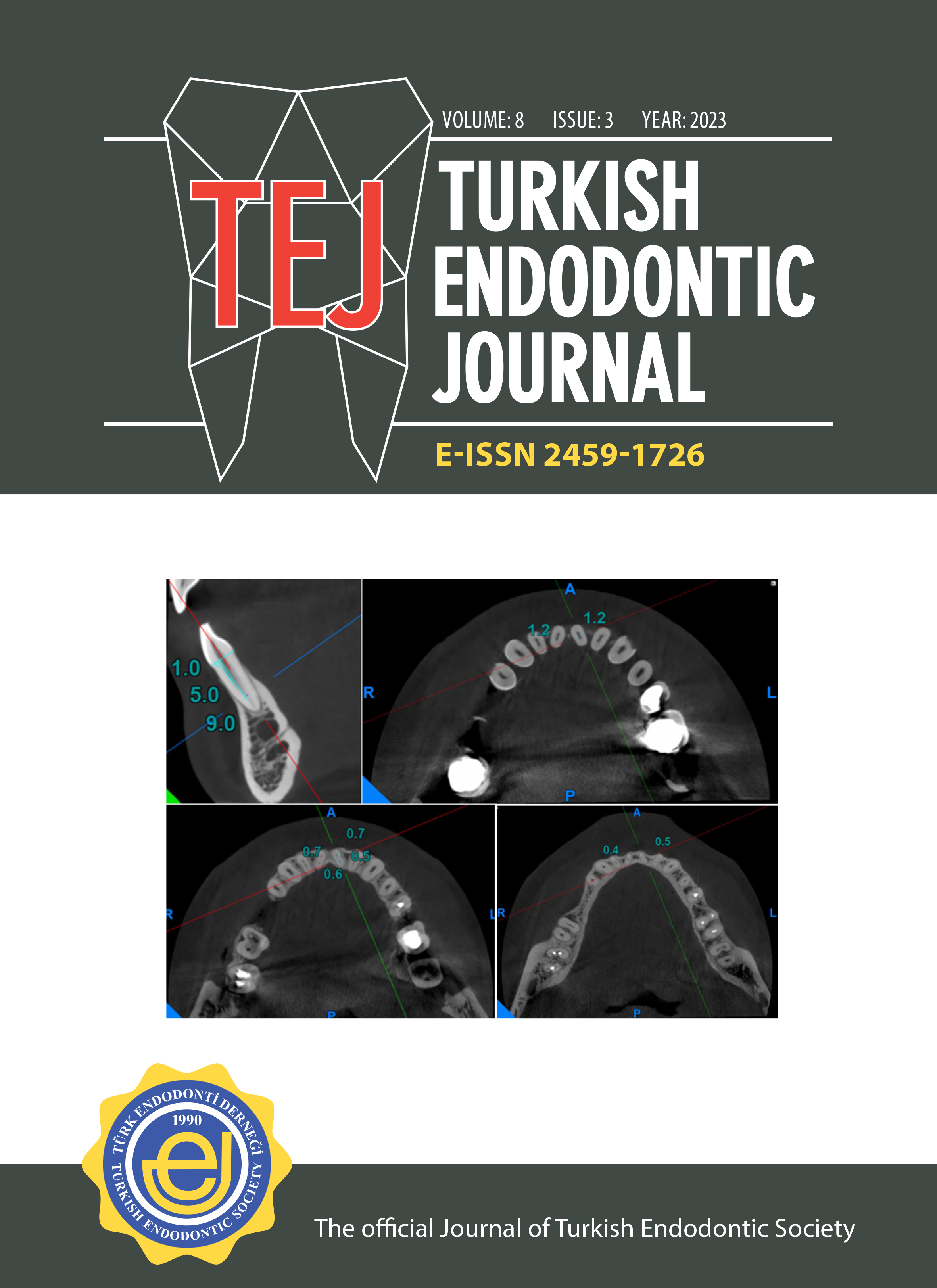Investigation of the effect of boric acid in different concentrations on dentin microhardness
Gözde Kotan1, Melike Özbek1, Betül Aycan Alim Uysal1, Gamze Nalcı21Private Dental Clinic, Istanbul, Türkiye2Department of Endodontics, Bezmialem Vakif University Faculty of Dentistry, Istanbul, Türkiye
Purpose: This study compared the effects of different irrigation solutions on the microhardness of root dentin.
Methods: Fifty single-rooted human teeth were chosen, and the roots were randomly divided into five groups (n = 10) according to the irrigant used for 5 min: 17% ethylenediaminetetraacetic acid (EDTA), 2% boric acid (BA), 5% BA, 10% BA, and distilled water (DW). After the irrigation procedure, dentin surface microhardness was calculated using a Vickers indenter 100 μm from the root canal lumen. Comparisons between the groups were performed with a two-way ANOVA test and and Tukey’s multiple comparison test (p = 0.05).
Results: All irrigation solutions decreased the microhardness of root canal dentin. The DW and 2% BA had a minimum effect on the microhardness of root canal dentin, whereas a significant decrease in surface microhardness was found in 10% BA group (p < 0.05). The coronal third of the 10% BA group showed the lowest percentage decrease, with a significant difference between the apical and middle thirds (p < 0.05).
Conclusion: In this study, 5% BA and 17% EDTA showed similar effects on the microhardness of root canal dentin. Further clinical research is required to evaluate the biocompatibility and safety of BA solutions.
Keywords: Boric acid, endodontics, irrigation solution, microhardness.
Manuscript Language: English



















